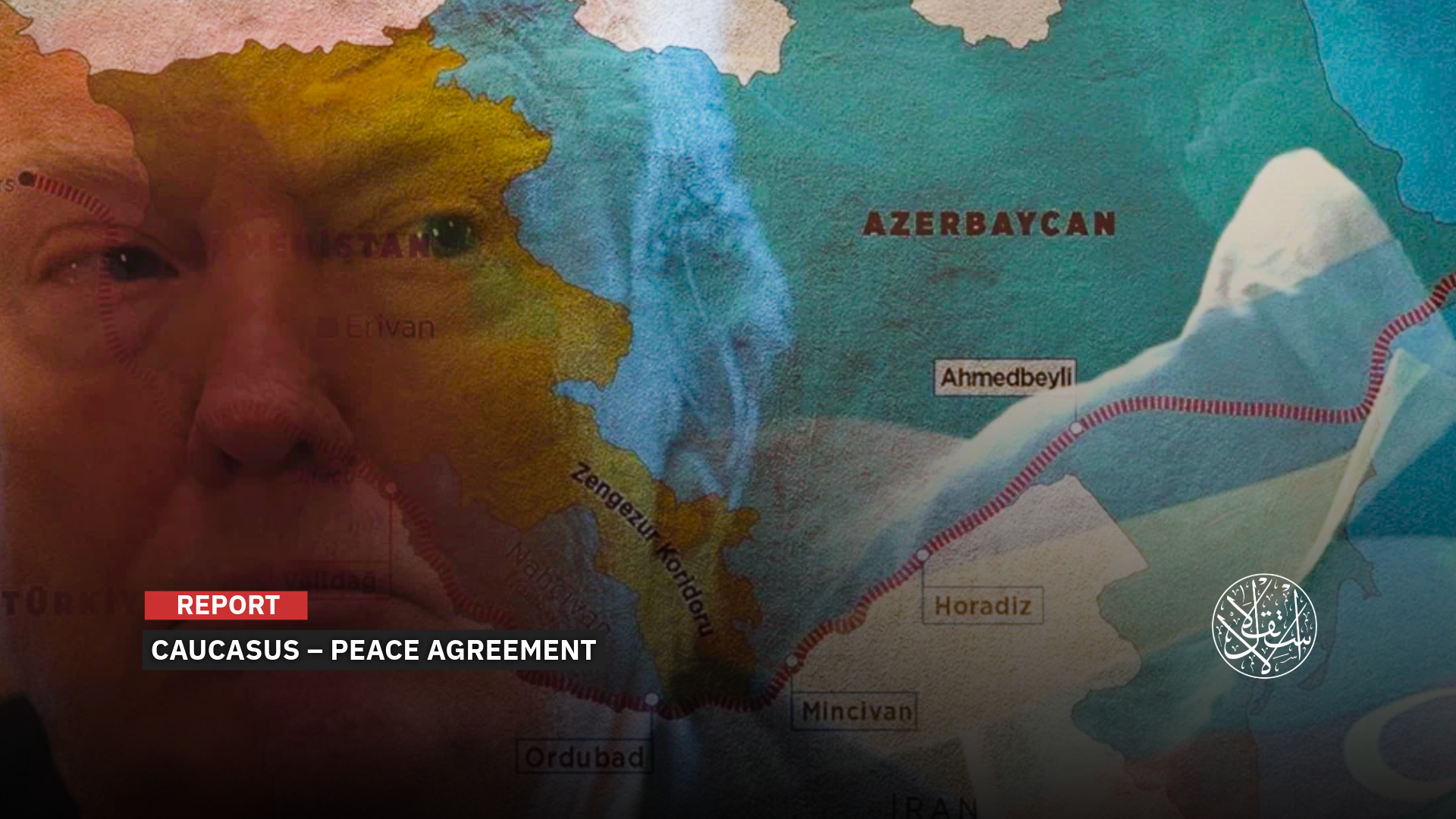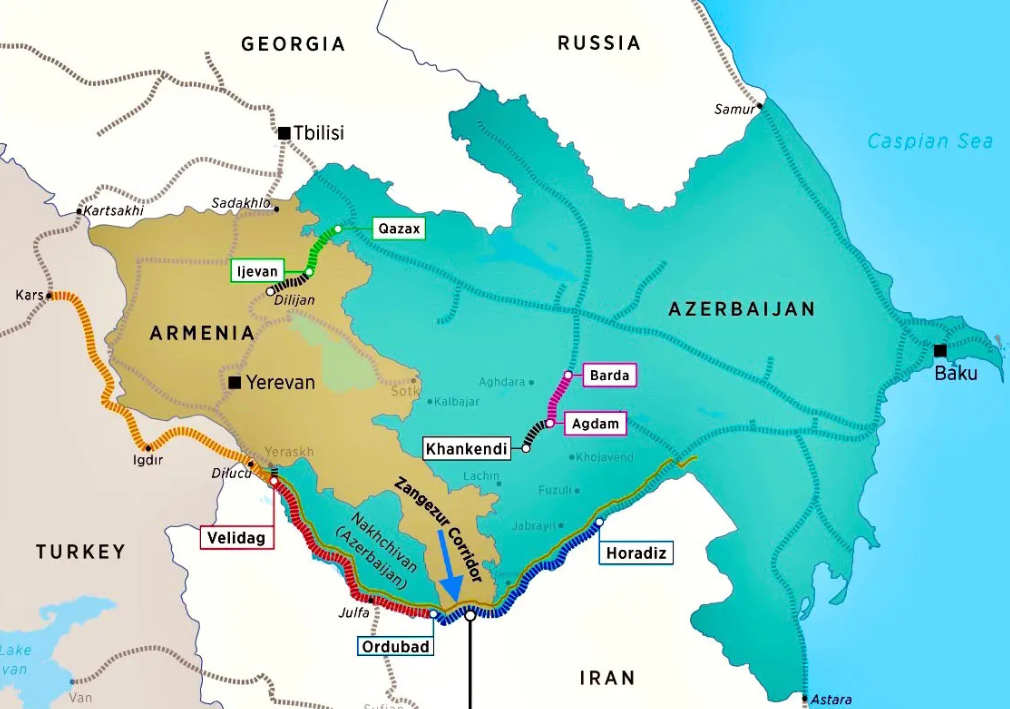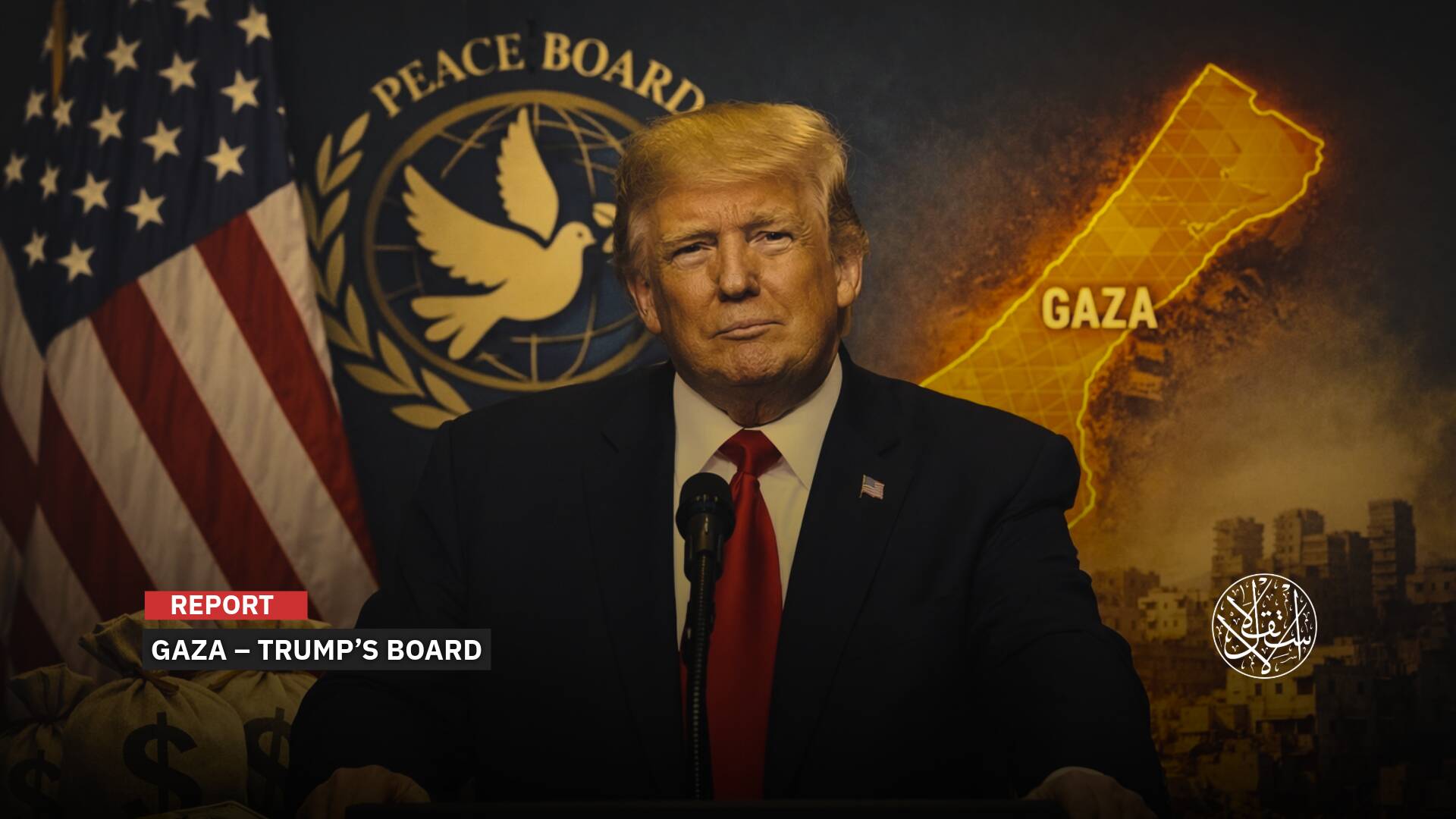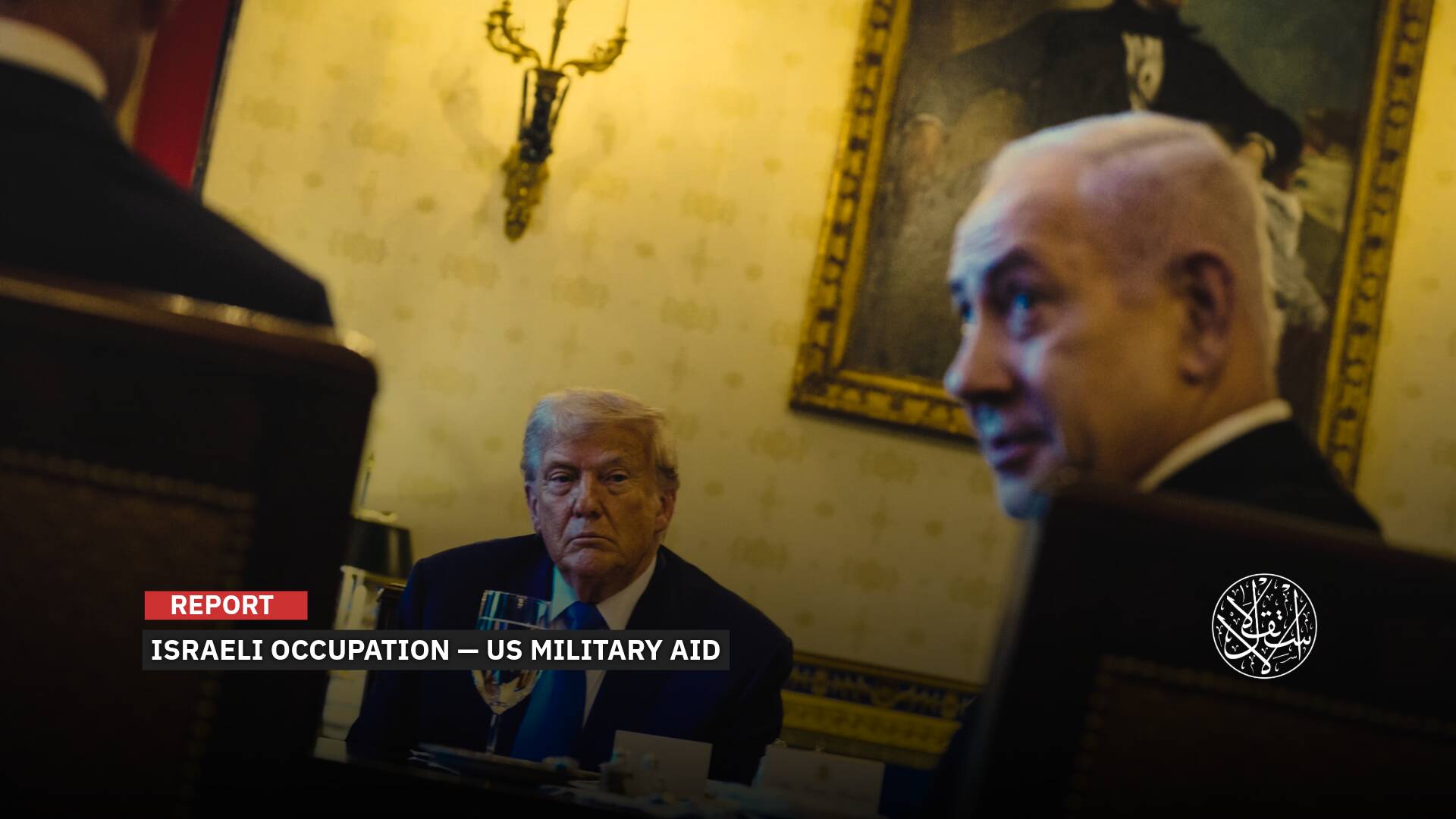How Trump’s Route Is Reshaping the Geopolitics of the South Caucasus

“The Zangezur Corridor would cut off Iran's indirect access to Russia.”
US President Donald Trump has long been portrayed as a dealmaker who conducts politics with a businesslike mindset, entering into a settlement only when he secures the greatest share of political and economic gains.
This was evident in the peace agreement he recently sponsored between Armenia and Azerbaijan at the White House, after nearly four decades of bloody conflict.
The new agreement granted Washington control of the strategic Zangezur Corridor, which has become an arena for complex geopolitical conflicts between regional and global powers.
Observers believe that this agreement will strengthen US influence in a key geographic region, increasing Washington's direct influence in the energy and supply equation between Asia and Europe and undermining all alternative transportation route initiatives, such as China's Belt and Road Initiative.
They noted that the corridor will also help the U.S. tighten its grip on Iran by weakening its ability to connect overland to the Caucasus and Russia, which could hinder Moscow's attempts to evade sanctions imposed on it due to its invasion of Ukraine.
Peace Agreement
On August 8, Azerbaijan and Armenia signed a US-brokered peace agreement during a White House meeting between US President Donald Trump, his Azerbaijani counterpart Ilham Aliyev, and his Armenian Prime Minister Nikol Pashinyan.
The agreement provides for the full normalization of diplomatic relations between the two countries, ending decades of conflict in the South Caucasus, a region plagued by closed borders and deep-rooted ethnic conflicts.
It also lifts restrictions on defense cooperation between the U.S. and Azerbaijan and gives Washington a vital presence in the Caucasus through economic and strategic partnerships with both sides, a development that may also concern Moscow.
It also includes exclusive rights for the U.S., most notably the establishment of a 43.5-kilometer corridor in the Syunik region of the South Caucasus.
The White House stated that the corridor will facilitate increased exports of energy and other resources and will be called the Trump Route for International Peace and Prosperity (TRIPP).
This corridor will connect Azerbaijan to the autonomous enclave of Nakhchivan—which was previously separated by Armenian territory—to Turkiye and then Europe.
In a related development, Trump revealed that the U.S. had signed separate agreements with Azerbaijan and Armenia to expand cooperation in the fields of energy, trade, and technology, including artificial intelligence, without revealing the details of these deals.
He confirmed that American companies will invest significant sums in Azerbaijan and Armenia, which will positively impact the two countries.
On his part, Aliyev said that the peace agreement is a historic event, and that we are writing a new chapter in bilateral relations with the U.S.
“We are beginning the path toward a strategic partnership with the United States, and the partnership charter will be drawn up in a few months,” he added.
Pashinyan noted that the peace agreement with Azerbaijan is a great deal that will pave the way for ending decades of conflict, which will have positive repercussions for the region and the world.
The leaders of Armenia and Azerbaijan praised Trump's role in ending the conflict between their countries and announced their intention to nominate him for the Nobel Peace Prize.

Unresolved Issues
Reports indicate that the new peace agreement is fraught with complications, but the most significant obstacle is Armenia's amendment of its constitution to remove any territorial claims against Azerbaijan, specifically the Nagorno-Karabakh region —a mountainous region of Azerbaijan with an Armenian majority.
The Armenian constitution still considers parts of Azerbaijan and Turkiye as part of Armenia, prompting Baku and Ankara to demand that Yerevan agree to the UN-recognized borders.
To address this issue, Pashinyan recently called for the drafting of a new constitution and a subsequent referendum, which reports indicate will take place before Armenia's parliamentary elections in June 2026.
The Republican Party of Armenia, which described the trilateral declaration as a surrender for Armenia, expressed deep concern about the Washington agreement.
The party sees it as yet another dangerous document signed by Armenian leadership under the pressure of Azerbaijani aggression, unilateral demands, and geopolitical processes.
The Armenian-Azerbaijani conflict dates back to the late 1980s, when Nagorno-Karabakh seceded from Azerbaijan with Armenian support.
Azerbaijan had previously demanded the opening of the Zangezur Corridor as a direct land route linking it to the Nakhchivan region without any interference from Armenia.
However, Yerevan rejected the idea of establishing a corridor through its territory without its control, fearing the loss of sovereignty over the Syunik region, its only outlet to Iran.
For several years, negotiations between the two countries continued, mediated by Russia and then Turkiye, while the two sides exchanged accusations and clashes.
On September 20, 2023, Azerbaijan regained sovereignty over Nagorno-Karabakh following a lightning military operation.
Armenian separatists subsequently surrendered their weapons under a new reality, which also displaced approximately 100,000 people from the region to Armenia.
According to experts who spoke to Reuters, the Armenia-Azerbaijan peace agreement could represent a strategic shift in the South Caucasus region, through which important oil and gas pipelines pass.
Tina Dolbaia, a researcher at the Center for Strategic and International Studies (CSIS), believes there are many outstanding questions surrounding the agreement, such as the potential American companies to manage the new corridor, as well as the extent of Armenian and Azerbaijani involvement in its construction.
She emphasized that Russia would likely be angered by its exclusion from the agreement, as well as by the American hegemony over the corridor.
However, she cautioned against excessive optimism, noting that Baku and Yerevan had previously signed peace agreements that were later retracted.

Iranian Threats
In the same context, Iranian President Masoud Peseshkian, in a phone call with Armenian Prime Minister Nikol Pashinyan, warned of potential US efforts to dominate the Caucasus region under the guise of economic investments and peace guarantees.
He stressed that Tehran welcomes any agreement that would promote peace between neighboring countries, stressing the need to prevent any military or security force from interfering in the implementation of the Zangezur Corridor project.
In turn, the Iranian Foreign Ministry welcomed the peace agreement between Baku and Yerevan as an important step toward lasting regional peace.
But it warned against any foreign intervention near its borders that could undermine the region's security and stability.
The Kayhan newspaper, close to Khamenei's office, reported that the presidents of Armenia and Azerbaijan granted the Zangezur corridor to an American military company for 99 years, describing the move as a major betrayal by both countries that should not go unanswered.
It is not yet clear how Iran will prevent the project, but a statement by Ali Akbar Velayati, a senior advisor to the Iranian Supreme Leader, raised doubts about its security.
In an interview with Iran's Tasnim News Agency, he described the corridor project as a conspiracy, saying it endangers the security of the South Caucasus.
He indicated that Iran, whether in coordination with Russia or not, will work to ensure stability in the region, emphasizing that the region will not turn into a corridor owned by Trump, but rather a graveyard for his mercenaries.
He emphasized that Iran will not allow NATO to approach Iran's northern borders, pointing to recent joint Iranian-Russian maneuvers in the Caspian Sea that demonstrated a willingness and determination to prevent any geopolitical changes.

Regional Influence
Russia welcomed the peace agreement between the two countries, as stated by its Foreign Ministry spokesperson, Maria Zakharova, but suggested implementing previous solutions developed with the support of regional parties (Russia, Iran, and Turkiye) to avoid the unfortunate experience of Western-led conflict resolution in the Middle East.
Zakharova's statement reflects legitimate Russian concerns, as Washington's control of the Zangezur Corridor would be a blow to the Kremlin's traditional influence in the Caucasus, given the still tense relations between Moscow and Washington over the failure of initiatives to end the war in Ukraine.
Turkish President Recep Tayyip Erdogan also played an active diplomatic role in reconciling the positions of Yerevan and Baku, affirming on several occasions his support for any peace agreement between Azerbaijan and Armenia and praising the agreement immediately after its announcement.
The Turkish Foreign Ministry announced its support for the peace agreement's provisions regarding the Zangezur Corridor, noting that this gives Ankara direct access to Central Asia and makes it a strategic link with Europe, especially since the corridor is known in Turkiye as the Turan Corridor.
The US presence in the Zangezur Corridor could open new horizons for cooperation between Ankara and Washington.
It could also fulfill Ankara's historic dream of connecting what is known as the Turkic world without having to pass through Russia or Iran.
The corridor could serve as a gateway for Israeli influence into Central Asia, expanding its scope of operations in Iran's vicinity and strengthening its presence in regional and international energy balances.
The Trump administration is currently in talks with Azerbaijan regarding the possibility of it, along with some Central Asian countries, joining the Abraham Accords to formally normalize relations with “Israel”.

In turn, analyst Mahmoud Alloush explained to Al-Estiklal that “the Caucasus is witnessing a new war of corridors today, as the U.S. seeks to challenge the influence of Russia, Iran, and China by controlling the trade routes and energy arteries connecting Central Asia to Europe.”
“The Baku-Yerevan peace agreement will lead to an unprecedented US presence in the South Caucasus, which serves Trump's efforts to encircle Iran and dismantle regional formulas in favor of Atlantic alliances,” he added.
He concluded that “the agreement—if its provisions are fully implemented—will pave the way for Washington and Tel Aviv to redraw the geopolitical map of that region to serve the purposes of the new Caucasus plan, which closely resembles the new Middle East plan.”
Sources
- Trump announces peace agreement between Azerbaijan and Armenia
- Azerbaijan and Armenia sign peace deal at White House that creates a ‘Trump Route’ in region
- Iran threatens planned Trump corridor envisaged by Azerbaijan-Armenia peace deal
- US-Brokered Armenia–Azerbaijan Peace Deal and the Trump Route for International Peace and Prosperity
- Trump reportedly seeking to bring Azerbaijan into Abraham Accords
- Trump’s crisis route












